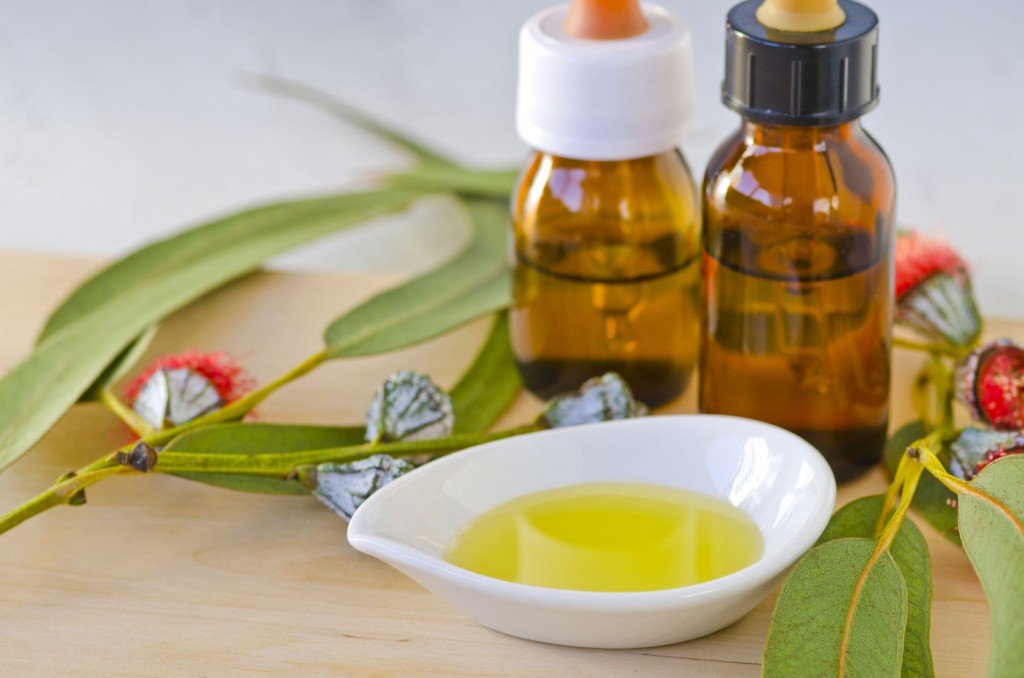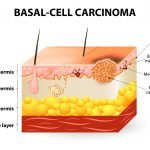Jacob Schor, ND, FABNO
Eucalyptus oil may be a useful adjunct to consider for patients undergoing cancer chemotherapy. This essential oil may activate innate cell-mediated immune responses and counter the immunosuppressive effects of therapy. At the same time it may reduce production of inflammatory cytokines that stimulate cancer cell growth. It’s classic action as an antibacterial and antifungal agent may also be of benefit.
Eucalyptus oil (EO), of course, comes from eucalyptus trees that are part of the genus of flowering trees of the Myrtaceae, or Myrtle family. These are the dominant tree flora of Australia. There are more than 700 species of eucalyptus, almost all natives of Australia. Eucalyptus trees were brought to California in 1850 and planted in the hope they would provide timber, especially for producing railroad ties. The wood from these American-grown trees eventually proved to be unsuitable for use as lumber. Eucalyptus trees ended up being used for windbreaks in the Central Valley. Their high water demand proved useful for draining swamps.
Last spring, Davis Lamson, ND passed along some fascinating information on EO for me to distribute to members of the Oncology Association of Naturopathic Physicians (OncANP). The two of us produce a monthly literature review for OncANP members in a gallant but seemingly futile attempt at keeping our membership abreast of new developments in the field of naturopathic oncology.
A paper published in April 2008 tells us that the essential oil of eucalyptus can stimulate innate cell-mediated immune responses.1 EO can activate the monocyte/macrophage system, one of the primary cellular immune responders against pathogenic attack.
The authors suggest, “This might drive development of a possible new family of immuno-regulatory agents, useful as adjuvant in immuno-suppressive pathologies, in infectious disease and after tumour chemotherapy.” Or in the more exuberant words of Dr. Lamson, “This could be a potential boon for those of us guiding patients through the Hawaiian Fire Walking Ceremony of chemotherapy, without having their feet burned!…. Essential oil is an agent that actually enhances immune function after chemotherapy, as tested against 5-FU.”
Lamson pointed out a second paper that tells us that EO reduces cytokine production.2 In this 2004 study, the authors tested the anti-inflammatory effect of eucalyptus oil measuring its ability to limit cytokine production by chemically-stimulated lymphocytes and monocytes. The immune cells were incubated with their ‘triggers’ along with small amounts of EO. The presence of the oil sharply decreased cytokine production. Doses of only 1.5 mcg/mL reduced TNF-alpha secretion in lymphocytes and monocytes by 92% and 99% respectively.2 Thus it appears eucalyptus oil while increasing defensive capabilities of immune cells, at the same time reduces their inflammatory cancer-potentiating action.
Lamson commented, “This major component of eucalyptus oil shows a definite reduction of inflammatory cytokines so undesirable in most malignant situations. This brings to mind pancreatic cancer cells that constitutively synthesize IL-1, which then acts in an autocrine manner to stimulate cell proliferation. …. Further, in lung cancer the inhalation route has the possibility of getting the agent directly to the cells involved, as well as into the circulation via the lung capillaries.”
Another paper from 2004 tells us that alpha-pinene, a constituent of most EOs, contributes to the anti-inflammatory activity of eucalyptus oil by decreasing the effectiveness of NFkB.3
Lamson suggests we consider 2 different methods to administer EO to cancer patients. The first is simply to give it orally in capsule form. A product is available on the market that contains 200 mg of EO per capsule that is 95% 1,8-cineol, considered a chief active principle. Lamson, apparently through personal experience, reports that these capsules may cause constipation, likely a result of the bactericidal action of eucalyptus on bowel bacteria. A second method that Dr. Lamson suggests to his patients to dose EO is by inhalation. Lamson has his patients add some eucalyptus oil to a mug of water and keep it warm on a ‘cup warmer’ and inhale the vapors.
Being of a far humbler mindset than Dr. Lamson, my approach is to tell patients to simply dab a few drops of EO just below their noses and a few more drops midsternum just before getting into a hot shower or bath. Some of the oil will be absorbed transdermally and some via inhalation.
Eucalyptus oil is far better known for its antibacterial and antifungal actions.4 In fact, Dr. Lamson explained to me that one of the grad students working for him stumbled upon these cancer-related studies while preparing a presentation on some research they had done on using eucalyptus oil to treat respiratory infections.
Eucalyptus oil and its administration go well with my preference for ‘simple things.’ It’s all too easy and too tempting, especially when dealing with life-threatening conditions, to get seduced by therapies for which the strongest argument in favor of use is that they are not simple; they come from exotic places, require complex preparation, painstaking administration, and work via mechanisms best described as incomprehensible. Eucalyptus oil in contrast is cheap, easy and safe to use. Let’s not overlook it.
 Jacob Schor, ND, FABNO is a 1991 graduate of NCNM and has practiced in Denver for the past 17 years. He served as president of the CANP from 1992 to 1999. He has served on the board of directors of the OncANP since 2006 and currently acts as secretary to the board. He is a Fellow of the ABNO. He was utterly shocked and humbled at the 2008 convention of the AANP to be presented with the Vis Award, an honor bestowed in the memory of William Mitchell. He is incredibly lucky to practice with his wife, Rena Bloom, ND. Dr. Schor writes newsletters for his patients that are popular with doctors and students.
Jacob Schor, ND, FABNO is a 1991 graduate of NCNM and has practiced in Denver for the past 17 years. He served as president of the CANP from 1992 to 1999. He has served on the board of directors of the OncANP since 2006 and currently acts as secretary to the board. He is a Fellow of the ABNO. He was utterly shocked and humbled at the 2008 convention of the AANP to be presented with the Vis Award, an honor bestowed in the memory of William Mitchell. He is incredibly lucky to practice with his wife, Rena Bloom, ND. Dr. Schor writes newsletters for his patients that are popular with doctors and students.
References
- Serafino A, Sinibaldi Vallebona P, Andreola F, et al. Stimulatory effect of Eucalyptus essential oil on innate cell-mediated immune response. BMC Immunol. 2008;9:17.
- Juergens UR, Engelen T, Racké K, Stöber M, Gillissen A, Vetter H. Inhibitory activity of 1,8-cineol (eucalyptol) on cytokine production in cultured human lymphocytes and monocytes. Pulm Pharmacol Ther. 2004;17(5):281-287.
- Zhou JY, Tang FD, Mao GG, Bian RL. Effect of alpha-pinene on nuclear translocation of NF-kappa B in THP-1 cells. Acta Pharmacol Sin. 2004;25(4):480-484.
- Ashour HM. Antibacterial, antifungal, and anticancer activities of volatile oils and extracts from stems, leaves, and flowers of Eucalyptus sideroxylon and Eucalyptus torquata. Cancer Biol Ther. 2008;7(3):399-403.





